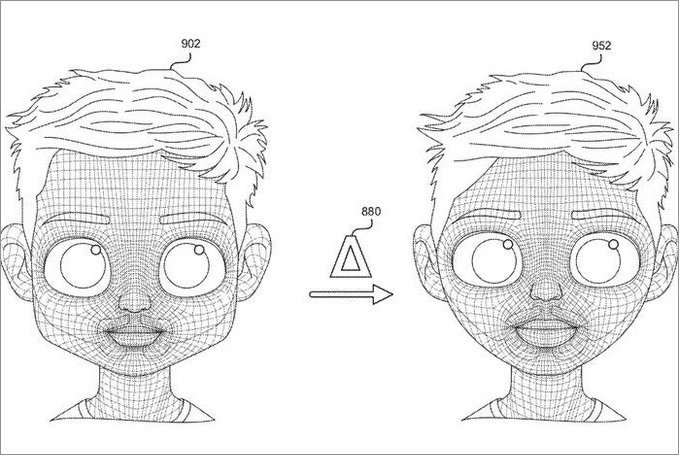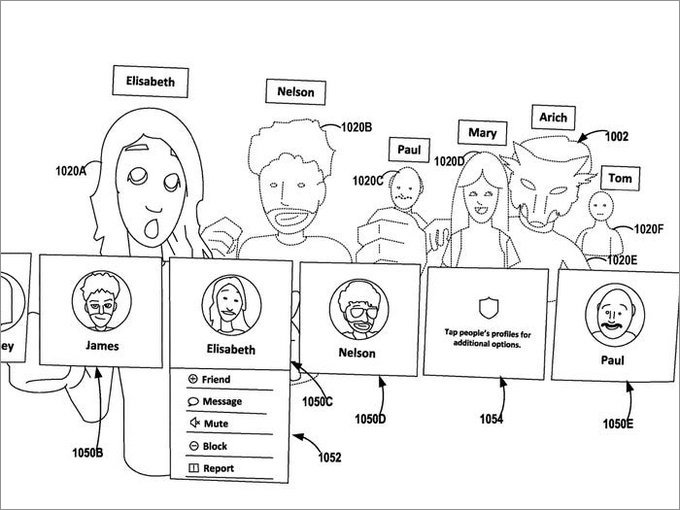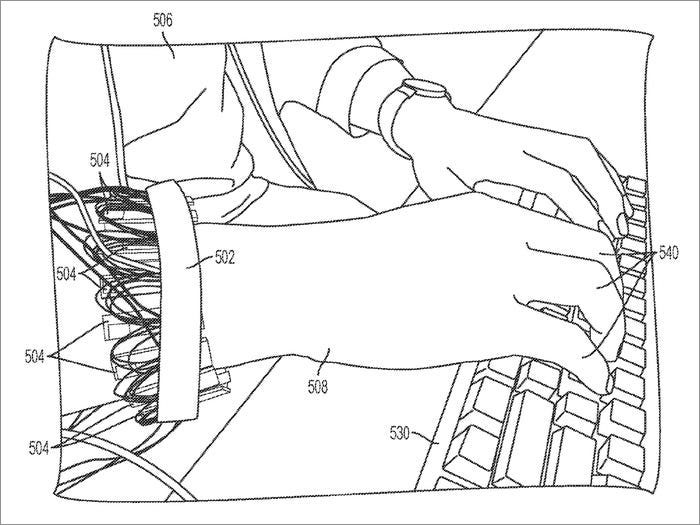Facebook patents and the comet in Don’t Look Up
By Mark Hurst • January 14, 2022
I enjoyed watching the movie Don’t Look Up last week, a dark comedy about a giant comet headed for Earth. As I explained on Techtonic this week (listen to the podcast or see the playlist), the movie is better than the mixed reviews might suggest. Despite the director Adam McKay identifying the movie as a climate-change allegory, I think it succeeds more as a comment on our entire moment: climate change, for sure, but also invasive Big Tech, superficial media (dependent on Big Tech), distracted politics (same), and a divided populace.
My favorite character in the movie is Peter Isherwell, a Big Tech billionaire CEO with modest aims to save the world while making himself much, much richer. Mark Rylance plays the character perfectly, showing him as a robotic, screen-addicted nullity who’s both supremely clueless and supremely arrogant – a toxic combination that is all too recognizable in our current oligarchs. Many comedic moments in the movie turn on the risible idea that anyone would trust someone like Isherwell to do the right thing. And yet he presumes to determine humanity’s future.
You’re on the free plan. Upgrade your membership by joining Creative Good – you’ll get all posts, and discuss with other members on the Creative Good Forum.
Please chip in.
In one scene, Isherwell’s team shows off their proposed solution to the comet threat. Sleek visual design and simulation graphics serve to distract the onlookers – including the U.S. President – from the plain idiocy of the solution.
I couldn’t help but think about that scene in Don’t Look Up when I came across a review of recent Facebook patents. I posted this thread with my thoughts, and since it struck a nerve online, I thought I’d share more of my thoughts here.
- - -
Facebook’s recent patent filings are full of uncanny-valley images, showing the future Zuck wants to create. (Credit goes to Kali Hays at Insider for compiling these images. Here’s the full article.)
Scanned faces
OK, here’s an image from a Facebook patent. A vision of our metaverse future:

There’s something unsettling about the aesthetics of the above sketch. Maybe it’s the oversized eyes, or the scanning grid overlayed on the face, or perhaps the mysterious delta shape. (One commenter pointed out the similarity with the Basic Attention Token logo, and I can only guess what Zuck would do with that.)
Straight out of Dante
Next up, there’s a lot happening in this ill-advised diagram:

Eyeless ghoul with melting face, pursued by bro with oversized fist? Check.
Sinister wolf creature getting way too close to nervously smiling girl? Check.
Facebook is patenting nightmares.
You’re on the free plan. Upgrade your membership by joining Creative Good – you’ll get all posts, and discuss with other members on the Creative Good Forum.
Please chip in.
A bad idea: meta-Meta
You think you hate the metaverse now? Wait ’til you see Facebook’s soul-crushing patent on using desktop software while in the metaverse:

That’s right, Zuck is spending billions of dollars to build amazing new virtual surroundings – like a desk. With a computer.
Hooked up to the Matrix
I’ve saved the worst for last:

As shown above, Facebook has patented some kind of attachment to your wrists – in real life – to feel and measure every action of your hands. To “predict” your “musculo-skeletal position.”
Run for the hills.
Who’s the problem here
I’ll grant that, as some VR enthusiasts commented on my thread, that last image could just be a gesture controller worn on the arm, much like the Myo armband released in 2014 by Thalmic Labs. More recently, the Myo band has shown potential to help multiple sclerosis patients (source), so there’s reason to hope that this device could be used for good.
My problem with these patent images isn’t primarily what they depict, since each image in turn could probably be linked to a potentially good outcome.
Instead, my problem is with who is behind the project. Zuck’s track record teaches us to expect the worst: there’s no hope that he’ll somehow “get it right this time,” putting aside his exploitative goals as he develops the metaverse. As I wrote in Are Facebook and Google criminal enterprises? (Dec 17, 2021), the most accurate way to view Facebook is by its intentional, long-running criminal activity. We should likewise view these patent applications as blueprints for his next crime spree.
You’re on the free plan. Upgrade your membership by joining Creative Good – you’ll get all posts, and discuss with other members on the Creative Good Forum.
Please chip in.
As I said in the original thread, my best advice is to get off of Facebook, Instagram, and WhatsApp – if you can. I’ve posted instructions on Good Reports at How to delete your Facebook account.
If we don’t stop Facebook here, we can all look forward to a shining future in the metaverse – sitting at a virtual desk, typing on a virtual computer, while our wrist-worn surveillance device predicts all our musculo-skeletal positions. As for me, as I wrote in The banality of tech (Nov 4, 2021), paraphrasing Hannah Arendt: I no longer want to be a bystander.
Post a comment on this column, for Creative Good members only.
Until next time,
-mark
Mark Hurst, founder, Creative Good – see official announcement and join as a member
Email: mark@creativegood.com
Read my non-toxic tech reviews at Good Reports
Listen to my podcast/radio show: techtonic.fm
Subscribe to my email newsletter
Sign up for my to-do list with privacy built in, Good Todo
Twitter: @markhurst
- – -